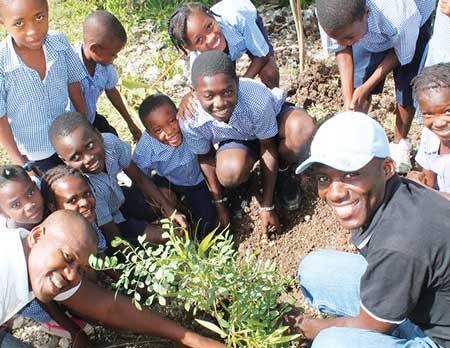
The Salvation Army continues to rebuild through grants and educational opportunities.
The Salvation Army in Haiti reached a milestone anniversary recently, and awarded two small grants for community projects.
Two years of training community leaders, forming Community Action Teams (CATs), assessing needs, researching project development and using community resources for small-scale pilot projects in earthquake affected communities paid off when the Community Capacity Development program (CCD) celebrated its second anniversary with an awards assembly for the CATs from Balan and Arcahaie Village.
Based on observed needs and community advisement, the CATs will raise chickens in Balan and develop a micro-enterprise support program in Arcahaie. Upholding the original objective of equipping communities to move from dependence on outside aid to autonomy, both ventures must become sustainable.
“There is no dignity when we constantly live on charity,” said Elissaint Jean Jacques, program manager.
The goal of the CCD program is to develop sustainable grassroots change, supporting a move toward autonomy by building and restoring relationship through faith-based facilitation.
“This is one of the most important projects we’re running in The Salvation Army right now,” said Major Vilo Exantus, divisional commander of the Haiti Division.
To prepare for the future, the Army in Haiti kicked off the vocational training component of its Integrated Family Support (IFS) project the week of June 17. With support from the Canada and Bermuda Territory, the Army is directly investing in the lives of 84 men and 24 women to help lay a foundation for a better Haiti.
The 108 young people in the Port-au-Prince area will receive nine months formal and informal training in high-demand vocations at J.B. Damier, one of the premiere vocational schools in Haiti. Classes offered include home construction, electricity, plumbing, ceramic work and auto mechanics.
“When you take your vocation seriously, it will change your life,” said Aunel Therassens, director of J.B. Damier, which partnered with The Salvation Army to offer this program at a discounted rate. “The best way to thank The Salvation Army is to excel in what you learn.”
The program targets young adults 18 years and older categorized as vulnerable according to economic potential, household status and other factors.
From the Haiti Division











